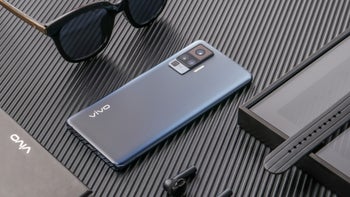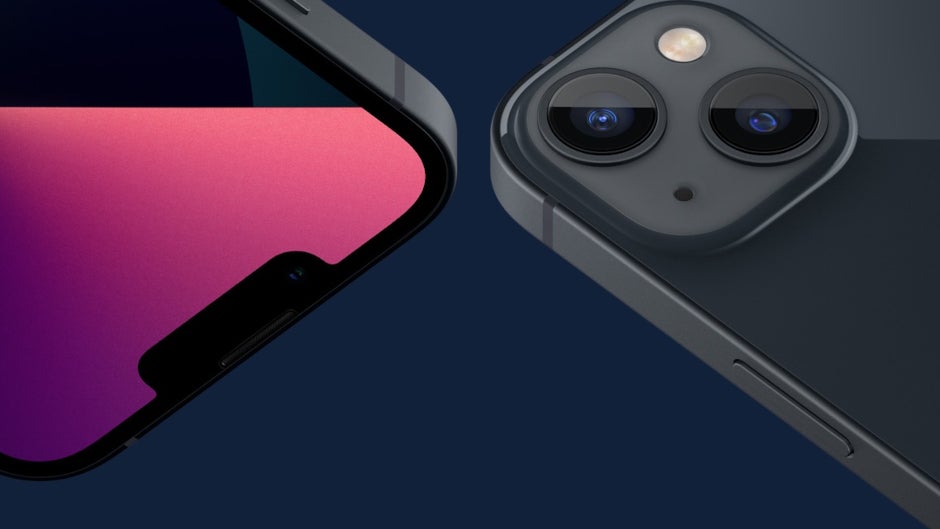For the second consecutive month the iPhone is China's top selling smartphone

For the second consecutive month, the Apple iPhone was the top-selling smartphone in China. According to Counterpoint Research, the iPhone had a 23.6% slice of the world's largest smartphone up from the previous month's 22%. Vivo was the next manufacturer after Apple with a share of 17.8%.
For the second consecutive month, the iPhone is the top selling smartphone in China
Counterpoint believes that Apple's rise to the top in China is due to the popularity of the iPhone 13 series which offers improved photography features, longer battery life, and more all at nearly the same price as the iPhone 12 line. November also included China's "Singles Day" which is similar to Black Friday in other countries. The country's popular e-commerce platform JD.com listed several current and older iPhone models in its daily sales top ten list on November 11th when "Singles Day" kicked off this year.

The iPhone is the top selling smartphone in China for the second straight month
Citing Counterpoint's report, the Wall Street Journal notes that Apple's month-over-month sales gain in China from October to November amounted to 15.5%. But the research firm sees Apple's strong showing in China coming to an end soon. Counterpoint analyst Ethan Qi says to expect Apple's sales in China to fade starting in December or January as Chinese iPhone users stop upgrading their older iOS powered handsets.
Delivery times for iPhone orders have been shrinking. From a 20 day waiting period in November, the iPhone 13 Pro model you ordered will now arrive in less than a week. This improvement indicates either more supply of iPhone units are available, or there are fewer orders for the device. Despite the improvement in iPhone availability, several e-commerce sites in China are limiting consumers to purchasing no more than two iPhones for certain popular models.
Also helping Apple in China is the continuing problems that have impacted China's former number one smartphone manufacturer Huawei. Considered a national security threat in the states due to its alleged ties with the CCP (Communist Chinese Party), the Trump administration placed the company on the Commerce Department's entity list which banned Huawei from accessing its U.S. supply chain including the company's top suppliers such as memory chip supplier Micron, software supplier Google, chipmaker Qualcomm, and others.
This led Huawei to develop its own HarmonyOS operating system and ecosystem. And when the U.S. changed its export rules to block foundries using U.S. technology from shipping chips to Huawei, the company was left scrambling to find components that it could use.
Besides Apple, beneficiaries of Huawei's fall from grace included Xiaomi, Oppo, and Vivo. Despite being hamstrung by the U.S., Huawei has just started selling its foldable Mate X2 Collector's Edition which supports 5G connectivity.
Vivo was the third quarter leader in China with 23% of the smartphone market
Last year former Huawei sub-brand Honor was sold to a consortium for $15 billion which took the company out from under the same restrictions that were impacting Huawei. Worried that it was losing access to needed chipsets because of its connection to Huawei, Honor arranged a divorce from its former parent which allows it to use the Qualcomm Snapdragon 8 Gen. 1 chip for its first foldable phone which will be unveiled with 5G support next month.
While Apple led the Chinese smartphone industry in shipments for the first two months of the fourth quarter (October and November), for the complete third quarter Counterpoint had Vivo leading the pack with a 23% market share followed by the 20% owned by Oppo. Honor's's 15% slice of the pie put it third followed by Xiaomi's 14%, Apple's 13%, Huawei's 8% and realme with 4%.
Today closes out the fourth quarter and the numbers for those three months will be released sometime in late January or early February. Can Apple finish the year leading the Chinese smartphone market for three consecutive months (which by definition would give it the crown in China for the fourth quarter) or will Counterpoint's Qi be correct when he said that iPhone shipments will fade in China during December and January after iPhone owners in the country are done upgrading their older models.













Things that are NOT allowed: